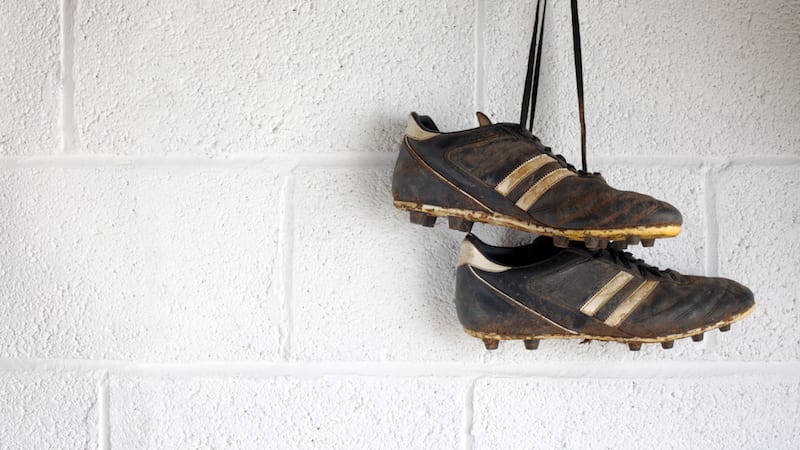This country is all about personal autonomy and rugged individualism … until it comes to how people in poverty spend money. Then everybody’s a critic. And I hear you: our tax dollars, etc. etc. But as someone who is very familiar with that classic trope of the guy in line buying a pound of ground beef with his hard-earned paycheck who sees the lady in front of him buying steak with food stamps, I’d like to tell you a story.
I have this student. We’ll call him David. David lives in a small apartment, in which he shares a room with several siblings. His family doesn’t have a lot of money to spend on extras and sometimes struggles to provide the bare necessities.
And David has a pair of $300 soccer shoes that he pulls out of his locker every recess period.
I know. I know what you might be thinking … His parents are negligent. Rather than making sure basic needs are met, they’re throwing money away on a flashy pair of shoes David will outgrow in two years. What do they think, that he’s going to be a pro soccer player? Do they know how many kids have that dream? Do they realize how many actually make it? It’s as bad as those Toddlers and Tiaras families that spend $1,500 to try and win $200 in a beauty pageant!
But before you judge, here are some details you don’t see.
David’s family isn’t planning for him to have a pro soccer career (although he’d certainly like to)! What they do want is for him to go to college. David got those shoes when private high schools began watching his soccer games. If he gets into one, he’ll have a much better chance of getting into college than if he goes to his local high school, which has a 40 percent graduation rate.
And another thing. David’s parents are both working multiple jobs. It’s tough to make a living wage on a sixth grade education, but they keep all their kids clean and looked after and fed. They don’t give their kids cell phones, not only because of the cost, but because they want their kids focused on academics, not social media and texting. These are parents who work hard, think smart, and love their kids to distraction.
One more important point about those $300 shoes. David’s parents didn’t buy them; he did.
After an extended school day, often made longer by volunteer activities or soccer practice, David works for his dad doing landscaping and handyman work. The kid—who is 14 years old—can fix just about anything, and he’s not afraid to get his hands dirty. He earned every cent of that $300 himself. There is not a person in the world who has the right to tell him how to spend it.
If you’re still not convinced, if you still think David should have sunk that money back into the family economy, I’ll ask you to reflect on this. If you take David’s money to pay his family’s power bill, you’ve taught him that no matter how hard he works, he can’t get ahead.
I’ve been to David’s neighborhood, and I can tell you that plenty of the older kids hanging around can help him find ways to make money faster than a long day of labor. You don’t want David going down that road, trust me. If you’re worried about taxpayer money, I can tell you that sentencing him to three years in prison for dealing drugs will cost about $93,000. Instead, why not teach a kid to work hard for the things he wants? Why not give him some hope and motivation?
I teach a dozen amazing kids like David every single year, and I’m damned privileged to do so. I just wish the critics out there would spend a little more time encouraging their aspirations, rather than telling them what kind of shoes to buy.
